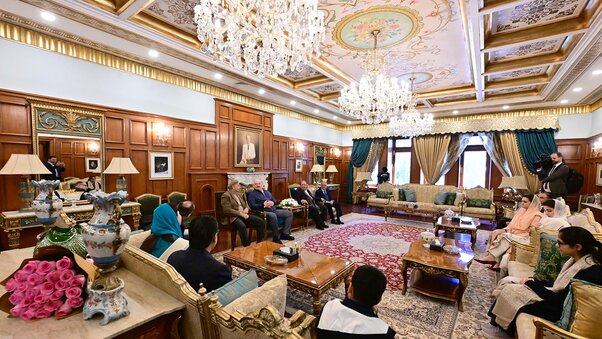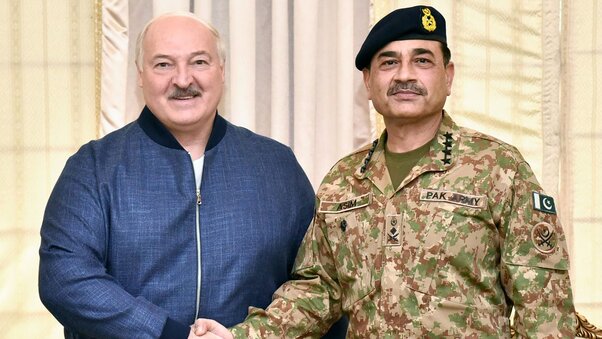Summit of Collective Security Treaty Organization in Astana
- 21
- 2
Belarusian President Aleksandr Lukashenko took part in the summit of the Collective Security Treaty Organization in Astana.
The summit was held in the Palace of Independence. The host of the summit, President Kassym-Jomart Tokayev of Kazakhstan, greeted Aleksandr Lukashenko at the entrance. This year Kazakhstan is chairing the CSTO.
In total, five heads of the CSTO member states took part in the summit: Presidents of Belarus, Kazakhstan, Russia, Tajikistan and Kyrgyzstan.
"Today I have the honor to speak first since our Armenian colleagues are not attending the meeting. This, by the way, characterizes the current geopolitical situation in the region and, to some extent, our organization," the Belarusian leader said.
At CSTO summits leaders speak in alphabetical order, based on the first letters in the names of the countries. Thus, Armenia takes the floor first. Earlier, Armenian Prime Minister Nikol Pashinyan froze the country's participation in the CSTO.
“We record the worsening global situation every year. The problem is not even that the system of checks and balances, which ensured international security and strategic stability, has faded into oblivion. We have been long hesitating to develop alternative legal mechanisms,” the head of state said.
In his words, someone needs this state of affairs, when the norms and principles of international law are replaced by some subjective and situationally changing rules, instruments of military and information blackmail.
“Against this background, the arms race is rapidly gaining momentum. The Eastern European region, especially Poland, continues its militarization. NATofication of Europe and the world in general is underway,” Aleksandr Lukashenko said.
According to him, military conflicts and hotbeds of tension are growing in many regions of the world.
“Clinging to an elusive dominance, the West is increasingly speaking the language of arms, turning a blind eye to the threats of nuclear confrontation fraught with the destruction of the entire planet,” the Belarusian President said.
"It is sad that the West uses all its resources to deal with fake problems that it creates itself. In the modern world there are a great number of transnational challenges and threats that can be tackled by joint efforts only," the Belarusian leader said.
Aleksandr Lukashenko cited the climate agenda, which "Western politicians turned into business a long time ago," as a vivid example.
Aleksandr Lukashenko pointed out other issues, including international terrorism. "Terrorist organizations use any opportunity to grab attention. Meanwhile, the Western countries refuse to cooperate in good faith with our organization in the fight against this evil," the Belarusian leader noted.
The President expressed concern about the prospects for the uncontrolled use of artificial intelligence, which is increasingly used to plan and solve military tasks. "With the ability to self-learn, this tool might destroy humanity if it gets out of control," he said.
Among the issues, the President also mentioned the topic of information security and cyber threats. "On the one hand, modern technologies create thousands of new opportunities and prospects. On the other hand, they give rise to many risks and threats: fake news, disinformation, attacks on critical infrastructure," Aleksandr Lukashenko pointed out.
He stated that the West is not willing to discuss these and other important issues. "As we often say, any crisis creates new opportunities. It would be a sin not to use them," the head of state stressed.


